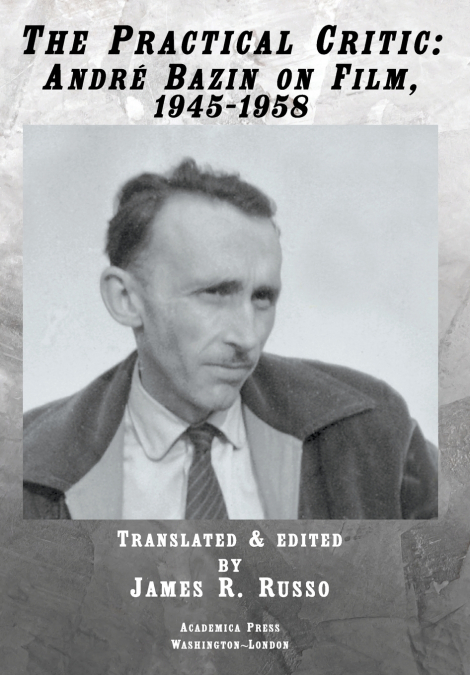
James R Russo
André Bazin (1918-58) was renowned for almost single-handedly establishing the study of film as an accepted intellectual pursuit, as well as for being the spiritual father of the French New Wave. In 1951, Bazin co-founded and became editor-in-chief of Cahiers du Cinéma, the most influential critical periodical in the history of cinema. Five of the film critics whom he mentored at that magazine later became the most acclaimed directors of the postwar French cinema: François Truffaut, Jean-Luc Godard, Éric Rohmer, Jacques Rivette, and Claude Chabrol. Bazin is also considered to be the principal instigator of the highly influential auteur theory-the idea that, since film is an art form, the director of a movie must be perceived as the chief creator or 'author' of its unique cinematic style.In his relatively brief lifetime, Bazin wrote some 2,600 articles and reviews, only about 200 of which are accessible in anthologies or edited collections-and most of these are theoretical pieces.The Practical Critic: André Bazin on Film, 1945-1958 offers critical reviews of notable individual films: Scarface, Citizen Kane, The Seven Samurai, The Great Dictator, It’s a Wonderful Life, On the Waterfront, Rebel Without A Cause, Aparajito, Miracle in Milan, Touch of Evil, East of Eden, Ivan the Terrible, The Best Years of Our Lives, La Strada, High Noon, and The Bridge on the River Kwai. The Practical Critic also features a contextual introduction to Bazin’s life and work, a Bazin bibliography, a selection of film stills, and a comprehensive index. This book represents a major contribution to film studies and a testament to the continuing influence of one of the world’s pre-eminent cultural critics.